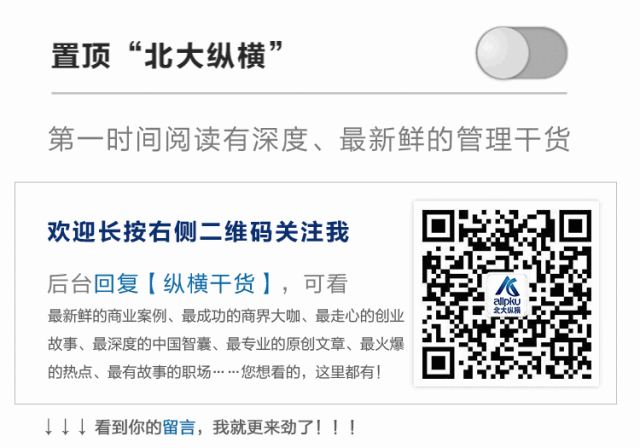
1643 words | 3 minutes reading
Currently, the world is in a transitional period from an information economy to a knowledge economy, with countries around the globe strongly encouraging and supporting scientific research and knowledge cultivation. Since the 19th National Congress, party and state leaders have repeatedly emphasized the need to implement the innovation-driven development strategy deeply, continuously enhancing economic innovation and competitiveness. In May of this year, General Secretary Xi Jinping specifically pointed out in a speech that we should accelerate the establishment of a technology consulting support mechanism for administrative decision-making, focusing on the role of think tanks and professional research institutions, improving the scientific decision-making mechanism, and enhancing scientific decision-making capabilities. The “Several Opinions on the Development of Technology Markets” issued by the Ministry of Science and Technology states that we should accelerate the development of technology markets, improve the technology transfer mechanism, and promote the capitalization and industrialization of scientific and technological achievements.
At the company level, to adapt to the needs of power system reform and corporate strategic transformation, there is an increasing emphasis on scientific and technological innovation, lean management, and benchmarking management. Investment in scientific research and development continues to increase, and the ability to forecast and judge technological trends is increasingly demanded, with a more refined division of labor in scientific management. Intellectual support in relevant areas has become very important, providing unprecedented opportunities for the development of scientific and technological innovation consulting.
With the proposal and implementation of the national innovation-driven development strategy, scientific and technological innovation has become an important strategic support for energy companies to improve productivity and overall strength. Corporate development strategies also require the improvement of innovation mechanisms, the construction of an open and efficient innovation management system, and the acceleration of the implementation of innovation-driven initiatives. To implement the national innovation-driven development strategy and the deployment of energy enterprise development strategies, it is necessary to intensify in-depth research on dynamic information from peers in the energy and power industry, including dynamic studies on industry policies, economy, strategy, and technology.
(1) Content of Peer Dynamic Information Collection in the Energy Industry
The collection of peer dynamic information in the energy industry includes, but is not limited to, the following points:
1) Dynamics of innovation activities in the domestic and international energy and power industries, including intelligence information on the scientific research and development directions, major scientific projects, key technological achievements, and scientific management fields of oil companies, power generation companies, and grid companies; including activities and specific measures taken by oil companies, power generation companies, and grid companies in management innovation, service innovation, and business model innovation;
2) Dynamics of leading technology companies at home and abroad, including intelligence information on the scientific research and development directions, major scientific projects, key technological achievements, and scientific management fields of domestic and foreign technology companies such as Google, Tesla, and Huawei; including activities and specific measures taken by these technology companies in management innovation, service innovation, and business model innovation.
(2) Research Process of Peer Dynamic Information Collection in the Energy Industry
The collection of peer dynamic information in the electricity and energy industry needs to be conducted monthly, forming reports. It is mainly divided into four stages: massive information collection – information screening (establishing a model based on screening criteria for filtering) – analysis and refinement of screened information – forming reports and editing reports.
1) Massive Information Collection Stage: Focus on collecting information from People’s Daily, the official website of the National Development and Reform Commission, the official website of the Guangdong Provincial Government, the official website of the Shenzhen Municipal Government, the official website of the National Energy Administration, Xinhua Energy, Polar Star Power Exhibition Network, China Energy Network, State Grid Report, Southern Power Grid Report, Shenzhen Special Zone Daily, Ocean Network, Southern Network, as well as foreign information, to comprehensively gather information on the energy and power industry and technological innovation.
2) Information Screening Stage: Establish an information screening model and evaluate and filter massive information based on dimensions like importance, innovation, relevance, and timeliness through expert assessment, forming a key information database for the energy and power industry.
3) Important Information Analysis and Refinement: Based on the screened information, analyze and refine the content to form a concise, clear, and in-depth report.
4) Report Editing and Formatting: Summarize and format the important information after analysis and refinement, forming the “Company Intelligence Reference” report.
(3) Research Methods for Peer Dynamic Information Collection in the Energy Industry
By building an information database in the energy and power field, fully integrating external internet data and users’ own business data, and utilizing big data mining and analysis techniques, conduct multi-dimensional data correlation analysis to form valuable information, thereby improving the decision-making process, normalizing data-driven social decision-making and scientific governance, and providing support for corporate decision-making.
Based on relevant data such as Baidu Search Index and Information Index, conduct comprehensive excavation and analysis of industry hotspots using data and insights, providing more detailed hotword data.Among them, the search index is based on the search volume in Baidu, with keywords as the statistical object, scientifically analyzing and calculating the weighted sum of search frequencies of various keywords in Baidu web searches. Depending on the source of Baidu search, the search index is divided into PC search index and mobile search index. The information index is based on Baidu’s intelligent distribution and recommendation content data, weighting and summing the number of behaviors such as reading and commenting, and then processing it into an index to comprehensively measure the level of attention. By utilizing Baidu Index, derive monthly and annual hotwords in the energy and power fields, as well as information on hotword trends, frequency, and changes.
Author: Wu Yongbo, Partner at Peking University Zongheng
Click the “Read Original” button below to view all original authors ↓↓↓


